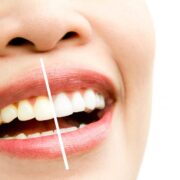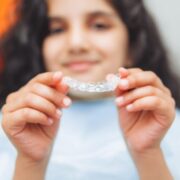The Effects Of Stress On Oral Health
Stress has a profound effect on our oral health, both in the short and long term. When we experience stress, our body releases hormones meant to protect us from danger. These hormones can lead to dry mouth, which can cause cavities and other dental problems. In addition, clenching and grinding of teeth, known as bruxism, is often triggered by stress and can lead to wear and tear on teeth enamel. Over time, this may result in sensitivity or even tooth loss due to weakened enamel.
Not only that but stress also impacts immune system functioning which can make us more vulnerable to oral infections such as gum disease or periodontal disease (gum inflammation). Stress can also decrease saliva production which helps protect our teeth from bacteria and decay. Low salivary flow is believed to be one of the leading causes of cavities as it prevents food particles from being washed away effectively.
Furthermore, recent research has also suggested that psychological distress may contribute to an increased risk for oral cancer due to its link with smoking and alcohol consumption; both of which are known risk factors for developing this illness. Stressful life events have been associated with poorer oral health outcomes such as increased plaque buildup and higher rates of tooth decay in adults compared to those who had not experienced these hardships.
It is important to remember that these effects are not irreversible if managed properly; practicing relaxation techniques such as deep breathing exercises or meditation can help reduce levels of anxiety, thus improving overall oral health by reducing the chances of bruxism or dry mouth occurring in the first place. Regular visits with a dentist are designed to help diagnose any potential issues early on while providing tips on how best to look after your teeth at home between check-ups, such as brushing twice daily with fluoridated toothpaste along with flossing regularly so food particles are removed before they become trapped between teeth and cause cavities or decaying enamel. Eating a balanced diet which limits sugar intake can also help prevent plaque build-up while encouraging healthy habits like drinking plenty of water helps keep bacteria levels low. With proper care and awareness towards managing stress levels, everyone should be able enjoy good oral health throughout their lives!











